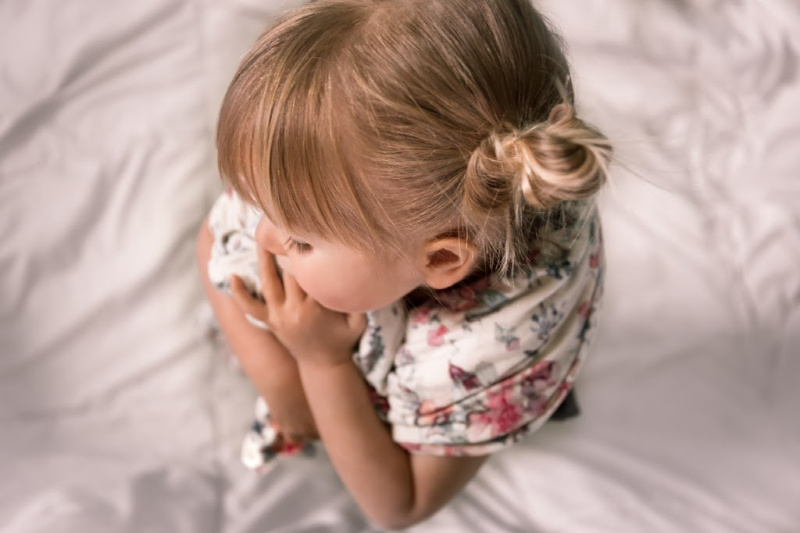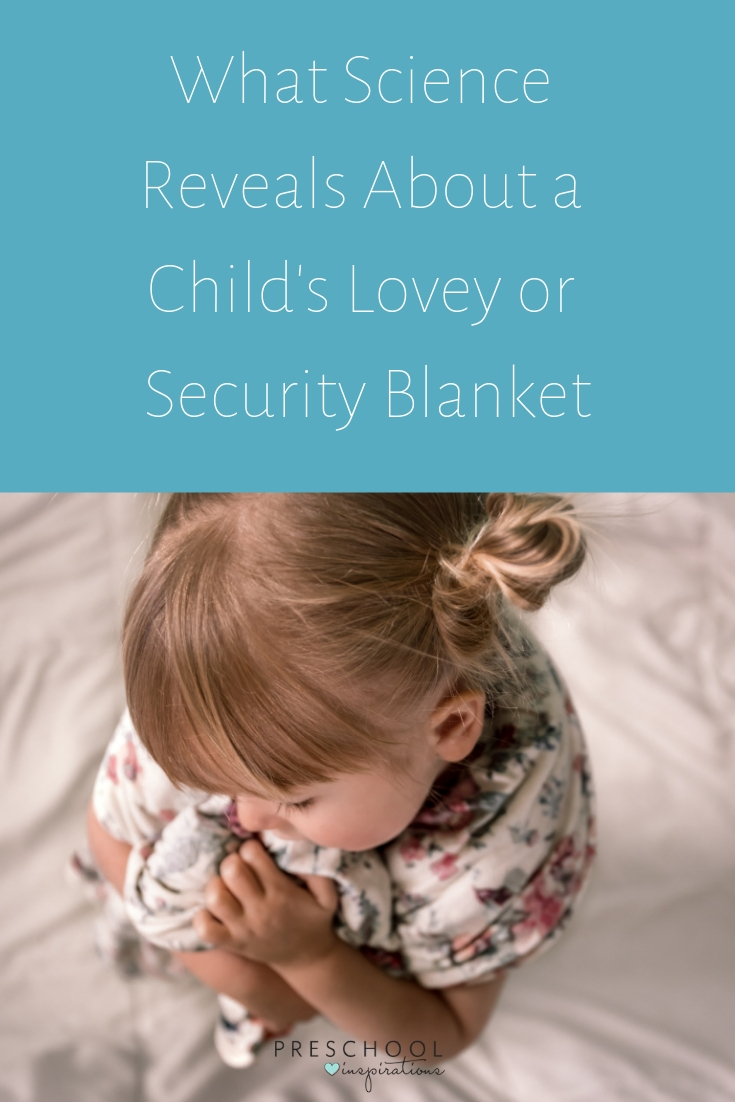We all remember Linus from the Peanuts – confident, caring, smart, and still carrying a blanket around everywhere. While Linus is endearing, we all wonder if letting children indefinitely carry blankies aka security blankets or loveys will harm their development.
Will they face judgment from peers? Will they struggle to make friends? Will they lack the independence of other children?
These are daunting questions. The great news is that these fears and questions are unfounded, and science shows that these objects are tools that children naturally gravitate toward.
Security Blankets and Loveys According to Science
Research shows that a child’s security blanket or beloved teddy is actually a good thing. Turns out, blankies and loveys are a tool to boost a child’s confidence level, self-value, and they are even empowering.
Why? Blankets and loveys are a sense of security for children — a way to help them leave their parent or caregiver for the day, to work through the tears of an emotional moment, and to handle those tough transitions that they need extra support with. With that blanket or lovey in tow, they are “less shy and more focused than children who don’t use these things.”
While added focus and being less shy are great benefits in and of themselves, there is even more good news about the advantage of letting children have blankies and loveys. Research also tells us that “their lovey objects are like the first training wheels for telling themselves ‘you’re all right’. With a built-in sense of security, children feel safe enough to take small risks, explore and grow.”
Training wheels provided a safety net which increases confidence and then are shed when no longer needed.
By taking small risks, children will feel free and unafraid to transition to taking larger risks as they grow and change.
Security Blankets as Transitional Objects
The debate about the value of security blankets and other lovey objects has been taking place since 1951, the same year in which the term transitional object was first used by D.W. Winnicott.
Winnicott defines the term transitional object as “a designation for any material to which an infant attributes a special value and by means of which the child is able to make the necessary shift from the earliest oral relationship with mother to genuine object-relationships.”
In simpler terms, this means that security objects:
- Empower children
- Help children make connections outside of their parents
- Help navigate separation for a child
- Indicate how children will create human friendships
According to Psychology Today, security objects are “rooted in sensorial elements that lessen the stress of separation, while they soothe and comfort the child.” Each aspect of the item — from how it smells, to feeling the worn spots, to the faded color — is part of the unique relationship between the security object and the child. Not only does the security blanket or lovey act as a comfort, but it has become a physical keepsake of memories and nostalgia.
With all these positives coming from security blankets and loveys, it is difficult to know when to take your child’s lovey away or even if you should take this away. As adults, we can feel apologetic or worried about how our child’s lovey will be received by others. Our own insecurities may lead us to take away our child’s beloved object.
However, research has shown that if the transitional object is removed or denied access to, it can actually create more anxiety and trauma. It is better to support the child by using the security blanket or lovey at key times.
Use reassuring statements to let the child know that it will be waiting for them.
Put your blanket in your cubby, and it will be waiting for you at nap time.
At home you can pick up the special object when it is not being used and place it somewhere the child can easily have access to it when they are needing extra emotional support.
Your blanket is waiting for you on your bed.
While it can be uncomfortable for us as adults, children need the freedom to discard their object when they are ready.
Bottom line, blankies, loveys, or any other transitional object are a positive tool for children. Security blankets, loveys, and similar items:
- Foster independence and security
- Ease anxiety in new situations
- Help children as they transition to different life stages
- Create self-worth and awareness
- Invite emotional wellbeing
The truth is that even adults find benefits from security objects.
I still have my own lovey tucked away at the bottom of my dresser. He smells like my childhood. He reminds me of innocence, safety, and security.
Even our friend Linus always had great friends and was a respected leader among his peer group. So, no need to worry.
Children benefit greatly from their blankies and loveys and will let them go when they are ready.
- Valentine’s Day Letter Formation Mats - February 4, 2024
- January Preschool Themes You’re Going to Love! - January 1, 2024
- December Preschool Themes You’re Going to Love! - December 1, 2023



Thank you for this information. I had a blankie a child and took it everywhere. Left it on a road trip with my parents, as a 6 year old, and my parents made an effort to go back and get it. One day, when I was 13, I came home from school and my blankie was gone! My mom told me she had thrown it away. It broke my heart. I blamed and was mad at her for time and even started to act out, though some of it was teenage angst. But I never had a choice in the matter and felt betrayed.
My 18 month old has a blankie that my grandmother gave before she was born. She takes it everywhere with her and has it at child care. I don’t think I’ll ever take it from her. It’s hers forever or as long as she wants to hold on to it.
I think they also boost the immune system 🙂 I know my kids’ lovies and stuffies and blankets all stink haha! But I also remember my “Birthday Bear” and how traumatic it was when it was taken away, or merely washed. They’re sacred to those kiddos and who am I to dictate why/when/how they are allowed to have these objects if there’s zero safety issues? Let them be little
Well said!
I totally agree that little ones should be allowed to have their blankies.
I think most people fear that if they let the little one have it, they will become dependent on it. My experience wit 3 to 4 year old for 28 years in a ore-school is that the less fuss the adults make over it, the better. The secret is that the little one will use the security object less and less, the more they feel that they are in control of it. And this applies to school ánd home.
I had a blankie. One thing for sure my mom understood how important it was for me. When she washed it had to be done when I was not around. Now that I’m old for sure still remember to comfort it gave, and the self esteem that I have now. Strong and sure of whatever come on my life can be dealt in a positive way. Kudos for parents that let the little have one. We will leave it behind when we are ready but the comfort never leave. Us.
I had this torn up, but still comforting blanket. It was shaped as a ball with many strings coming out of it, but that’s what made my blanket special to me. When I was around 10, I came back from school. The day was normal and I didn’t think too much about my blanket because I knew it was going to be there waiting for me when I go to bed. As I was getting ready for bed, I realized my blanket wasn’t there. I went frantic everywhere trying to find my blanket but I couldn’t. I told my mom where it was and that’s when she realized she accidentally threw away my blanket. I cried for days and nights for my blanket. It was the only thing I cherished with my whole life.
My 3 yo son has cherished his older brother’s spiderman blanket his entire life.. it is definitely starting to fall a part and only one side of it is still soft lol, but he LOVES it. It is so hard to find time to wash it because he always knows it is missing and he literally will not go anywhere without – even a 10 minute trip to the store. I have never ONCE thought about taking it away from him or weening him off of it. It makes my heart so happy to know that he has that extra comfort in his bubus’s old blanket! It is not embarrassing to me in the slightest.
He always rubs it on his little face and tells me “I love my blankey mom!”
How in the world could to take that from him or any child?
Is it healthy for parents to create this attachment to a blanket? I saw this with my 4 year old granddaughter & now with my 2 year old grandson. He’s very secure on his own but, the parental units insist that he have his blanket to nap. I’m concerned that their attachments weren’t a “natural” occurrence but taught/encouraged condition.
Can anyone help answer this for me? Thanks
It’s very common for children of this age to use a blanket to nap. If they’re not interested, they just won’t use it. Oftentimes, moms who breastfeed or did previously transition the weaning process by introducing the blanket as a replacement. I hope this helps!
Yessssss!!!! 🙌🏼 I weaned my son at a year and that’s when he found comfort in his blankie! He’s 4.5 now and still has it everywhere. ♥️
My 1yr old’s attachment to her blanket has become a safety concern. She wants to carry it with her everywhere and has already tripped over it several times. I am making her a smaller/safer version, but who knows if she’ll accept it!
A small version is a lifesaver! Crossing my fingers that she loves it.
My granddaughter is now 7 and still has her special blanket that brings with her when she comes to my house. All that was posted on it’s security for children is true for her. It’s interesting that my daughter who will be 50 never had a security blanket or “lovey” and she turned out to be just as the artlcle said about children that DID have blankets and loveys. I think it simply depends on the personality of each child.